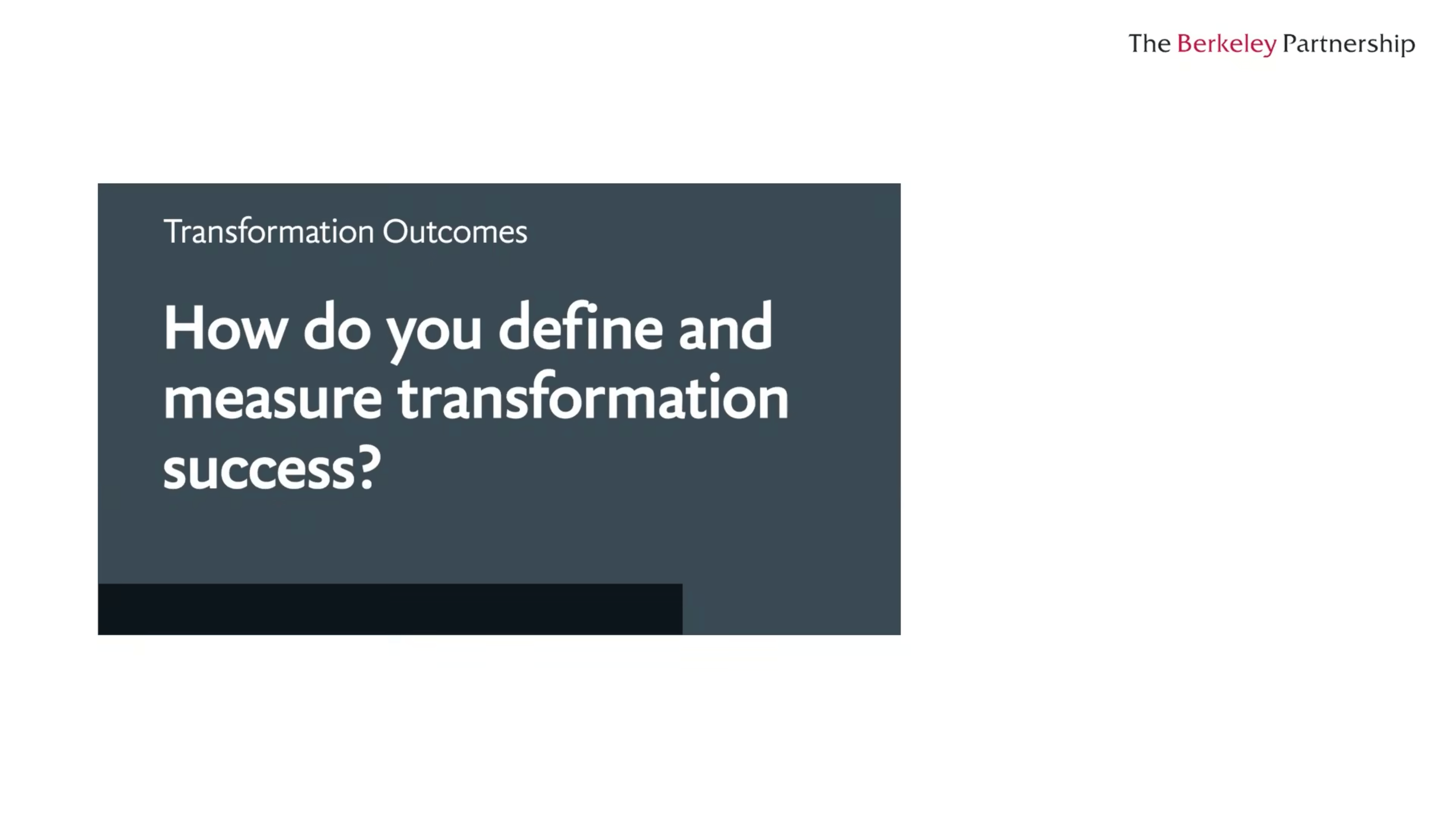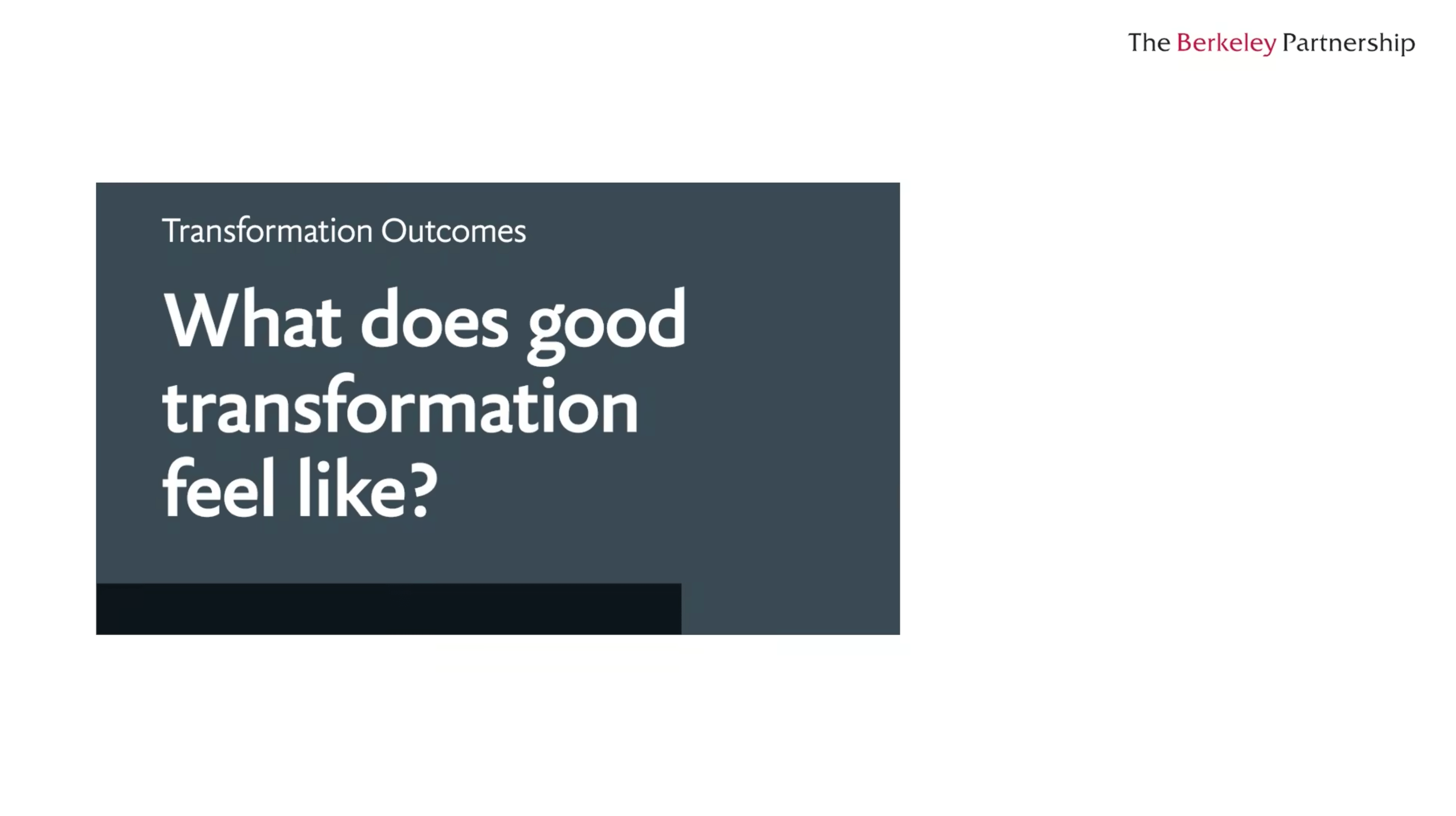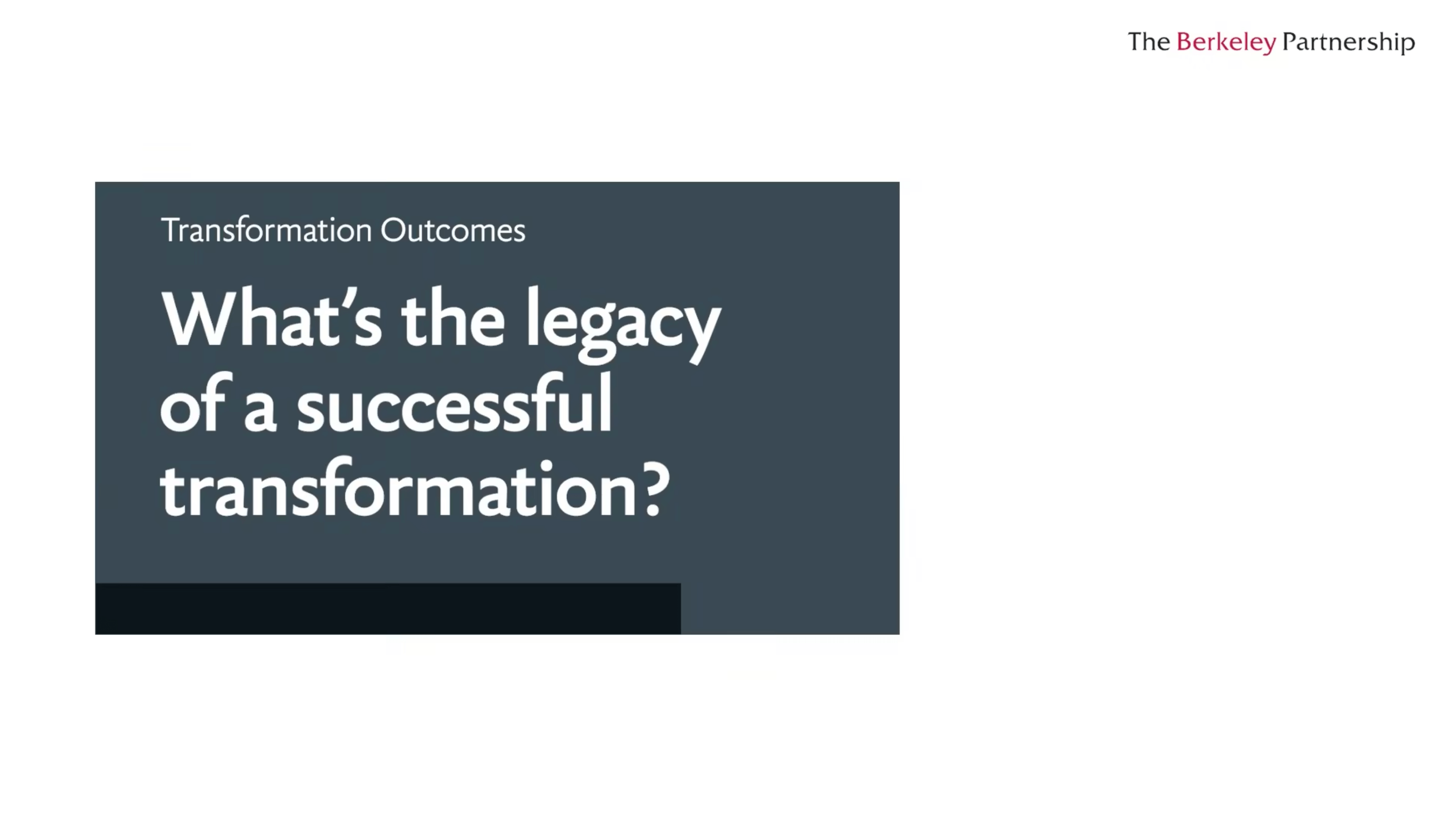Transformation
Video playlist: transformation outcomes
Reach for the right transformation results
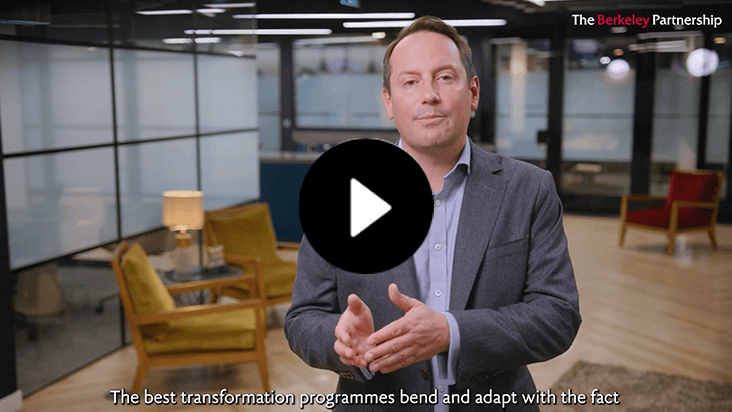
Video playlist: flavours of failure
Hear from our partners and consultants on what to avoid when undertaking your organisation's transformation.
Watch now

Transformation health check
Use our quick and easy online health check to assess whether you have the key ingredients in place for successful transformation.
Find out your score
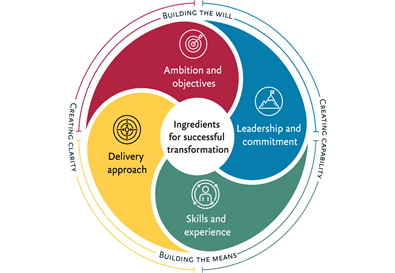
The ingredients for successful transformation
Transformation is ambitious and promises great benefits. But it's also often complex, challenging and daunting. No matter where you are on your journey, you need four key ingredients to achieve success.
Discover the recipe
